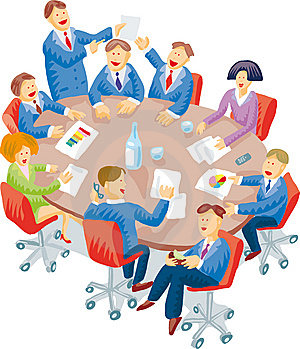Meetings are a corporate oxymoron: an essential practice that generates groundbreaking ideas but also sucks the life out of a workforce. Employees waste away in conference rooms trying to pay attention to others give languorous presentations on mind-numbingly boring TPS reports and listening to overviews with no impact on his or her job function. Don’t do this to your employees.
Here are four key considerations you can use to keep co-workers engaged and productive.
1. Be timely.
Meetings are major investments and should be expected to create a substantial return. Before holding a meeting, ask yourself if the opportunity cost of conducting the meeting is worth it — will the benefits exceed the cost? Additionally, meetings should be no longer than 45 minutes, as humans focus best within that timeframe. If the agenda clearly looks to take longer (it shouldn’t unless there are special circumstances), split the meeting into 45-minute periods with a rest in between.
2. Have an agenda that makes sense.
Not only do meetings take time, but they also impact the way we manage our time. Consider the frequency with which meetings are called around a specific project. Do you really need daily status updates or can it be shifted to weekly? Meetings take people out of their workflow and promote procrastination. Most workers see the half hour before and after meetings as dead time, because there isn’t enough time to dig into work tasks.
3. Be selective on who attends the meeting.
Only invite people capable of contributing to the discussion. This way, employees feel valued and are more likely to positively engage in the discussion. Employees need to understand that their time is more valuable than their presence at every meeting. Management is giving people more time to complete their work task — not diluting their value to the company. In fact, fewer meetings should increase interoffice communications and keep everyone informed.
4. Determine if you really need the meeting.
This is the ultimate question people should ask themselves. We live in a world of Skype, email, Wikis and a million other collaboration tools. These tools do not make all meetings irrelevant — particularly for those involving problem solving, brainstorming and other types of creative thinking — but they can be used to free up quite a bit of time if used effectively.
Source: CEO.COM
 Blog EBE English Book Education
Blog EBE English Book Education




